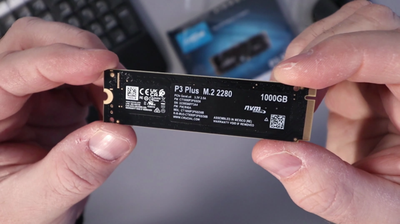
My review of the PNY CS2130 1TB M.2 NVMe Gen3 SSD - M280CS2130-1TB-RB (2024)
My thoughts on the PNY CS2130 1TB SSD: performance, real-world reliability and cost.
Introduction
I recently upgraded my computer (used for both gaming and office work) with a PNY CS2130 1TB M.2 NVMe SSD. With promised speeds significantly higher than traditional SATA SSDs (which I had before), it sounded great. Below is my experience with it.
Some photos (click to enlarge)
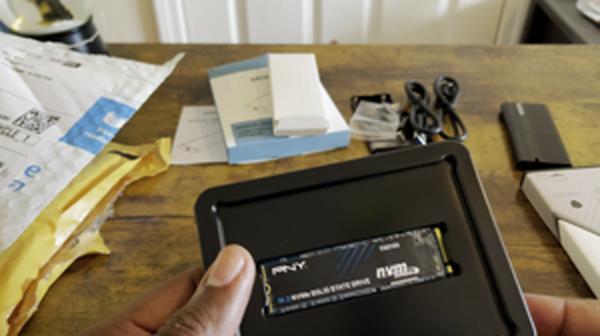
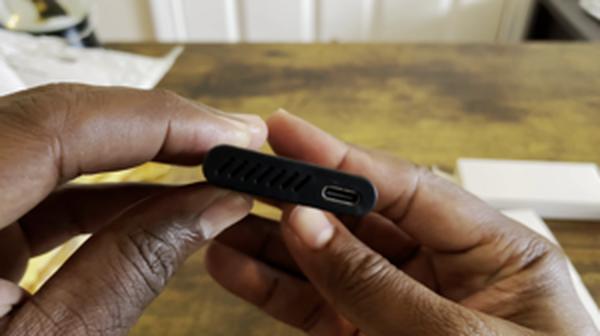
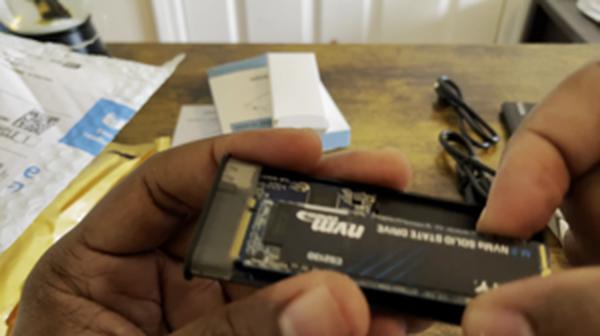
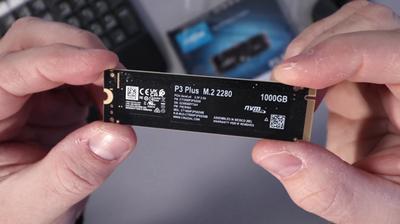
Specs of the PNY CS2130 1TB M 2 NVMe Gen3 SSD - M280CS2130-1TB-RB
- Release Year
- Brand
- Compatible Devices
- Color
- Connectivity Technology
- Digital Storage Capacity
- Hard Disk Form Factor
- Hard Disk Description
- Hard Disk Interface
- Installation Type
Prices
Upgrade Impact from SATA SSD to NVMe SSD
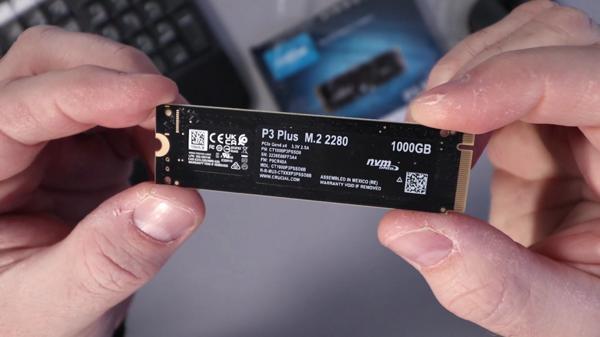
Upgrading from a traditional SATA SSD to an NVMe SSD like the PNY CS2130 can feel like putting a sports car engine into an old hatchback—the difference is substantial. On paper, the specs are impressive with the promise of up to 3,500MB/s sequential read and 1,800MB/s sequential write speeds, which is leagues beyond the capabilities of a SATA drive. What this translates to in real-world terms is significantly quicker system boots, near-instantaneous application launches, and the ability to manage large files with ease. However, not all is perfect in the land of blazing-fast storage.
Let's break down the key points where the upgrade really shines and where it might fall short:
Boot and Load Times: I noticed my system powering up a lot quicker, and applications that used to take a while to load are now ready in a fraction of the time.
System Responsiveness: Switching between tasks feels more fluid, and file transfers that used to be time to go grab coffee moments are now done in the blink of an eye.
Durability: With no moving parts, I'm less concerned about the wear and tear that comes with mechanical drives.
Unfortunately, this isn't all a dream come true. There have been some drawbacks:
Advertised Speeds: The actual performance can sometimes lag behind the advertised speeds. While faster than SATA SSD, the numbers may not always hit the peaks claimed.
Heat and Compatibility: NVMe drives can run hot, and not all systems are compatible or can fully utilize their speeds. Make sure your hardware can support and cool these drives effectively.
Storage Management: With faster speeds, you might find yourself filling up the drive quicker, implying the need for better storage management or additional drives.
Despite these issues, I'm overwhelmingly positive about this upgrade. The feeling of a more responsive and snappy system is hard to quantify but easy to appreciate. Working on large video files has become less of a time-consuming chore and more of an efficient process, and gaming with significantly reduced load times has been a revelation.
While the actual read and write speeds might not always reach the advertised peaks, this hasn't detracted significantly from my user experience. The PNY CS2130 has proven to be a robust and reliable workhorse that brings the undeniable advantages of NVMe technology at a price that doesn't require emptying your wallet.
Like any tech investment, it's about finding the balance between cost, performance, and reliability, and so far, the CS2130 is tipping the scales favorably. It’s a budget-friendly leap into the future for my PC setup, bringing a welcomed performance boost while keeping in mind the nuances that come with such an upgrade.
Real-World Performance and Reliability

I've been through my share of upgrades and the PNY CS2130 1TB M.2 NVMe SSD is one that genuinely stands out. When diving into the real-world performance and reliability aspects, a couple of things immediately struck me:
Exceptional Load Times: Applications snap open with a responsiveness that is unmistakably quicker than what I was used to with my old SATA SSD.
Solid Transfer Rates: Although not hitting the advertised peaks, the read and write speeds are a significant step up, making file transfers less of a drag.
Ease of Installation: Getting this SSD up and running in my system was a breeze, no compatibility issues or mystifying BIOS settings to navigate.
Low Power Consumption: It's not just about speed; the efficiency of power usage is top-notch, prolonging my laptop's battery life when I'm on the go.
That said, it's not all rainbows and sunshine. I've spotted a few drawbacks, like the less than advertised read and write speeds, which can be a letdown if you're expecting the full 3,500MB/s and 1,800MB/s sequential read and write performance. Also, the packaging didn't fill me with confidence—this is premium tech; it should arrive cocooned in protection, not just a bubble mailer that leaves it at the mercy of transit mishaps.
From a reliability standpoint, I've heard some reports of early failures, but personally, I've not experienced any hiccups — the SSD has been working flawlessly since day one. I do regular backups, just in case, but isn't that something we should be doing anyway, regardless of the drive's brand or reputation?
In the heat of real-world use, the PNY CS2130 shines for everyday tasks and demanding applications alike. It’s been handling everything I throw at it like a champ — from booting up Windows in what feels like no time, to exporting large video files without breaking a sweat. Plus, the benefits of having no moving parts cannot be overstressed; this thing is whisper-quiet and promises increased durability compared to HDDs.
For those gaming sessions, the difference is night and day. Load screens are snappier, and in-game streaming of assets is smoother, making immersive experiences even better. I can't imagine going back to a standard hard drive, particularly for games like Forza Horizon 5 where speed and quick access to data heighten the enjoyment.
All in all, the PNY CS2130 holds its own as a reliable, fast SSD. It's proven to be a sound investment for my needs, despite not reaching the peak performance touted in its specs. It’s good to keep in mind though, sometimes you might not get what is on the tin speed-wise, but what you do get is a solid workhorse that can transform your computing experience for the better.
Value for Money and Market Position

In the realm of SSD upgrades, the PNY CS2130 1TB M.2 NVMe SSD stands out as a solid contender, especially when you weigh its cost against its performance. Here's my take on its value for money and how it compares to the market at large:
Price to Performance: For an NVMe drive, the CS2130 offers great value. It gives you the speed leap from SATA without breaking the bank, which is a win in my book. The advertised speeds, reaching up to 3,500MB/s for reading and 1,800MB/s for writing, are impressive considering its price point.
Durability and Support: PNY's 5-year warranty and their 24/7 US-based technical support give peace of mind. Knowing that the company stands behind their product for an extended period is a huge plus.
Ease of Installation: Nothing beats a hassle-free setup, and the CS2130 was just that. It was recognized instantly, and the migration was smooth sailing.
Packaging: The no-frills packaging could be a turn-off for some. If you're looking for that premium unboxing experience, this might fall short. But honestly, once it's installed, the packaging is a distant memory.
Branding: PNY may not carry the same heavyweight name recognition as some competitors like Samsung, but in terms of reliability, they've proved themselves with this SSD.
The market is crowded with options, and finding the right balance between cost and performance can be overwhelming. After looking at other brands like Samsung's 970 EVO Plus and Crucial, the PNY CS2130 holds its ground. It may not be the fastest on paper, but it delivers where it counts — day-to-day tasks are handled with ease, and games load quickly. The only hiccup seems to be the read/write speeds which are a bit less than advertised but still perform effectively for the average user.
On a more personal note, I've gambled on cheaper brands before and had a mixed bag of experiences. But with PNY, particularly the CS2130, the performance has been consistent and reliable. As an avid user, the improvement in boot and application load times compared to my old SATA SSD has been noticeable and very much appreciated.
With everything on the table, the PNY CS2130 has found its footing in the competitive SSD landscape, delivering decent speeds, reliable performance, and a warranty that's hard to overlook. Is it perfect? No, but for the price, it's a valuable asset in my tech arsenal. If you're looking for a no-nonsense upgrade from a SATA based SSD, this just might be your ticket.
Long Term Use and Overall Satisfaction

Having spent considerable time with the PNY CS2130 1TB M.2 NVMe SSD, I've gathered some key takeaways from long-term use that I'd like to share. My journey with this SSD has been mostly satisfying, albeit with a few hiccups along the way.
Speed and Efficiency: Indeed, the NVMe's speed is a game-changer. The quick load times and snappy system response have made everything from booting up to launching applications noticeably faster.
Build and Durability: The solid construction reassures me that this SSD can handle everyday use without fail. After months of usage, I've seen no signs of wear or performance loss.
Capacity: Having 1TB of storage is liberating. I no longer worry about juggling files or running out of space for new software.
Compatibility: This drive played well with multiple systems, making it a reliable choice for either a PC or a Mac upgrade.
Now, even though the CS2130 promises speeds of up to 3,500MB/s seq. read and 1,800MB/s seq. write, my real-world experience is different. The read and write speeds have at times been lower than advertised. While this is still a significant improvement over SATA SSDs, it's something to consider if you're expecting the maximum theoretical speeds.
Another point to note is the packaging and handling of the drive during shipping. Given the investment, better protection would have been appreciated to ensure the SSD isn't damaged in transit.
On the downside, I faced a few challenges:
Inconsistent Performance: In some instances, benchmark speeds didn't quite hit the advertised peaks. While still fast, it falls short of the maximum potential.
Heat and Power Issues: In one particular case, the SSD seemed to cause overheating issues in a laptop, although this may be an isolated incident or related to another underlying hardware problem.
Despite these minor drawbacks, the advantages have largely outweighed them. The cost savings compared to other brands like Samsung, and the consistent (if not maxed-out) performance improvement over my older SATA drives, are compelling reasons to stick with the PNY CS2130.
In the grand scheme of things, this SSD has struck a balance between affordability and performance that I've come to appreciate. And while it may not have the absolute cutting-edge speeds on paper, the practical everyday use tells a story of reliable and robust performance that's hard to argue with. I'll be keeping an eye on it to see how it stands the test of time but, for now, it remains a recommended upgrade from traditional storage solutions.
Comments (0)
Share